Recent deadline goalie trades prove move isn't for faint of heart
Pulling the trigger on a trade at any time during the NHL season comes with obvious uncertainty for front-office executives. Acquired players have the potential to not fit in, subsequent contract negotiations can get messy, or expectations for performance are simply not met.
However, dealing players and tinkering with rosters at the trade deadline is the riskiest time of year for any general manager - especially if a goaltender is involved.
The Philadelphia Flyers' move to acquire netminder Petr Mrazek was obviously precipitated by the unfortunate injuries to both No. 1 starter Brian Elliott and backup Michal Neuvirth in a matter of a couple weeks. But that doesn't change the fact Mrazek's spotty track record leaves the potential for the move to blow up in Ron Hextall's face.
And, if the recent history of deadline goalie trades provides any indication, it's of the fact Mrazek could have a hard time adjusting to a new team with fewer than 25 games left before the postseason begins - complicating matters for a Philly squad looking to be a legit playoff threat.
That wouldn't be the first time, however, a trade-deadline deal - or one in the preceding weeks - involving a goalie didn't pan out for the team looking for stability in the blue paint.
March 14, 2000: Senators acquire Tom Barrasso from Penguins
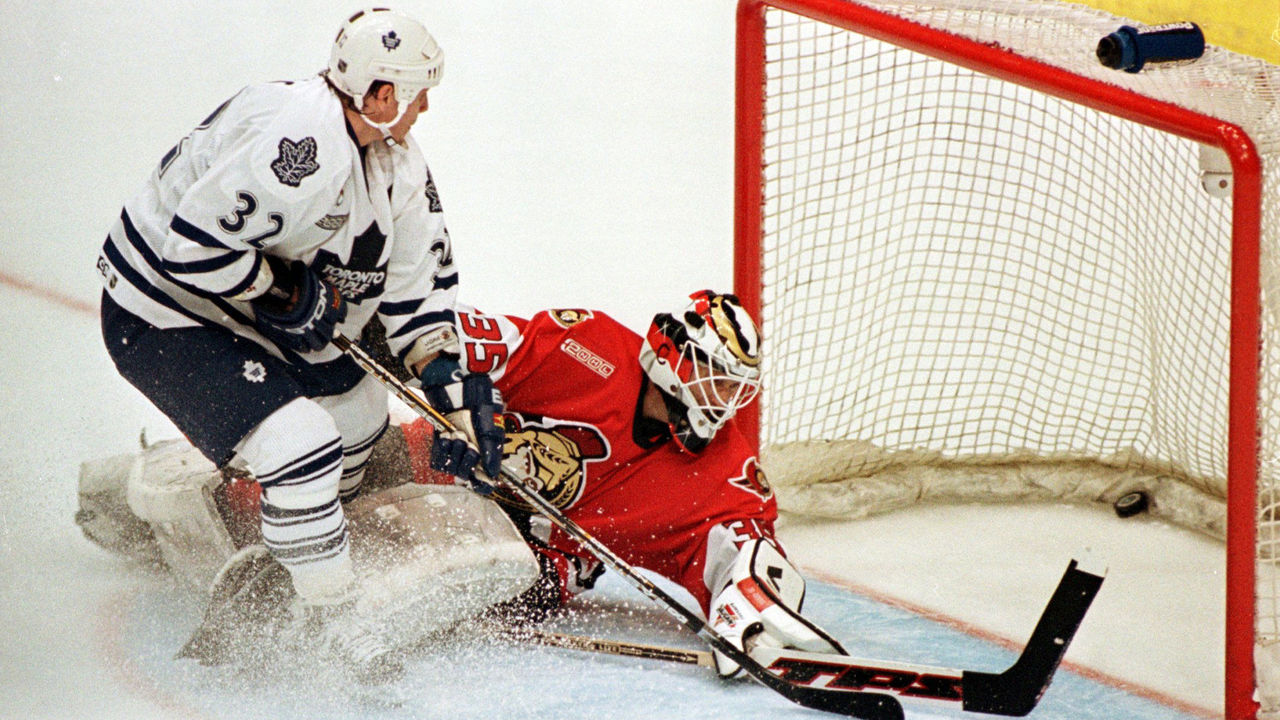
Some of the younger puckheads out there might not remember the lanky 'tender or his move to the nation's capital. But Barrasso was brought in at the 2000 deadline in hopes of solidifying a goaltending situation in Ottawa that has seemingly always been the club's Achilles heel. The outcome was far from desirable.
After being swept in the playoffs the previous season with the goalie duo of Damian Rhodes and Ron Tugnutt, the Senators acquired Barrasso for the stretch run and playoffs for what was supposed to be a stronger veteran option.
Unfortunately for Ottawa, the move backfired almost immediately, as Barrasso registered only three wins out of seven remaining regular-season games to go along with an ugly .879 save percentage. He followed that by allowing 16 goals in six postseason games as the Sens lost to the Toronto Maple Leafs in a first-round, six-game series in which they never truly competed.
March 9, 2006: Oilers acquire Dwayne Roloson from Wild
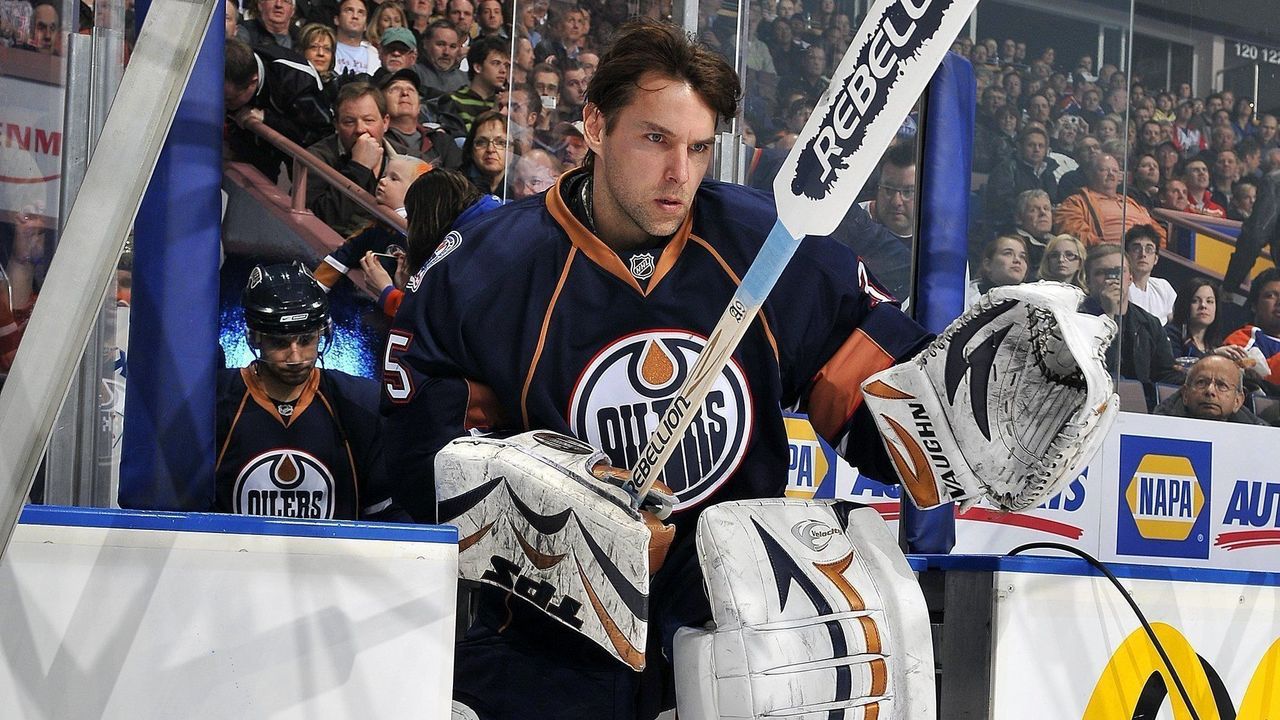
A rare deadline goalie trade that initially worked out, the Edmonton Oilers gave up a first- and third-round pick to add Dwayne Roloson ahead of the postseason push in 2006. Roloson would go on to post a respectable record of 8-7-4 for the remainder of the regular season.
Nothing to get overly hyped about, but take in Roloson's postseason numbers before passing judgment on this trade: He was lights out for his club once the calendar flipped to April, registering a playoff record of 12-5 to go along with a sparkling .927 save percentage and 2.50 goals-against average.
Roloson's late-season addition was instrumental in galvanizing the Oilers' locker room ahead of the playoff drive, and he was perhaps the biggest reason for the team qualifying for its first Stanley Cup in over a decade.
Unfortunately for Edmonton fans, the dream season went up in smoke when Roloson injured his knee in Game 1 against the Carolina Hurricanes, missing the rest of the Cup series. Ty Conklin relieved Roloson in that opening game before giving way to Jussi Markkanen for the rest of the series, and the Oilers fell painstakingly short in seven games.
Edmonton would subsequently miss out on the postseason the next three years with Roloson in net, but his deadline addition was notable, nevertheless.
March 4, 2009: Senators acquire Pascal Leclaire from Blue Jackets
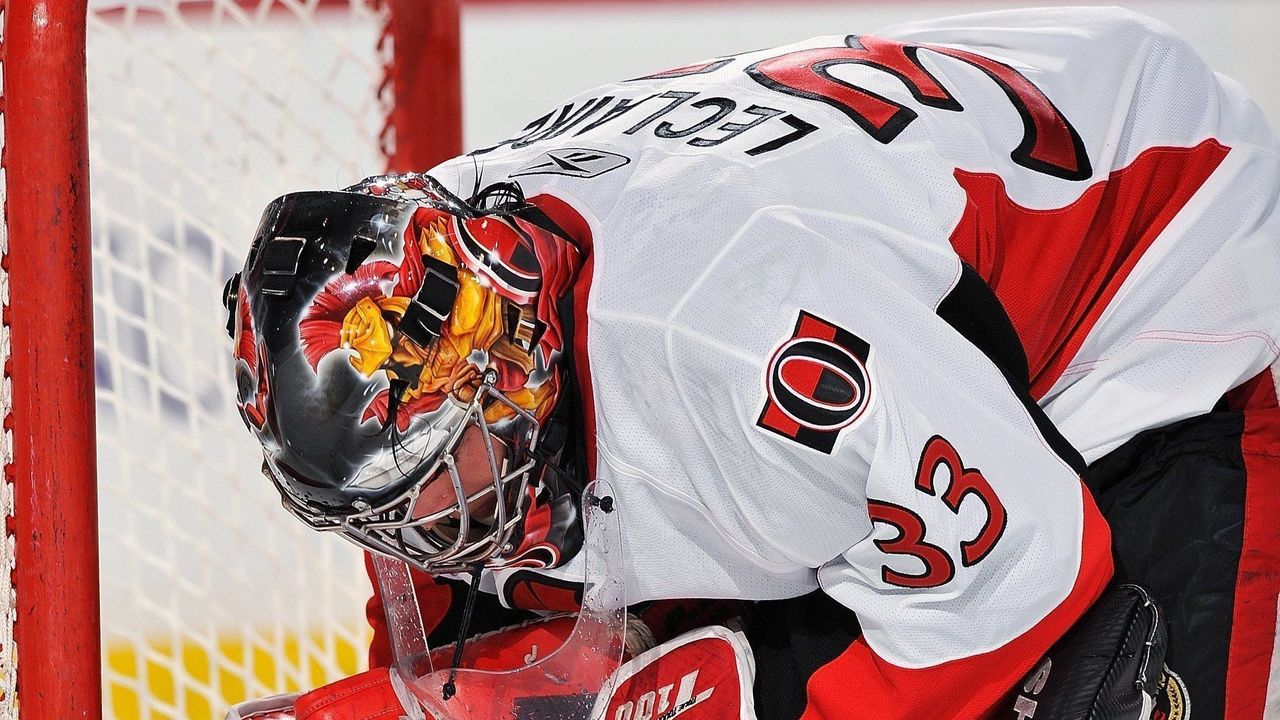
The Senators were at it again with a questionable deadline goalie add in the spring of 2009, shipping out centerman Antoine Vermette to the Columbus Blue Jackets in exchange for injured netminder Pascal Leclaire and a second-rounder.
Leclaire had undergone ankle surgery earlier in the year and missed the entire 2008-09 season, and would go on to play only 48 regular-season games (16-21-3, .894 save percentage, 3.09 goals-against average) for a Senators team still struggling to find an answer in net.
It should be noted the second-round pick Ottawa received turned into then-promising young netminder Robin Lehner, so the deal wasn't a complete dumpster fire for former Senators GM Bryan Murray.
Still, the Leclaire experiment was a deadline disaster that still irks some Sens fans to this day.
Feb. 28, 2014: Blues acquire Ryan Miller from Sabres
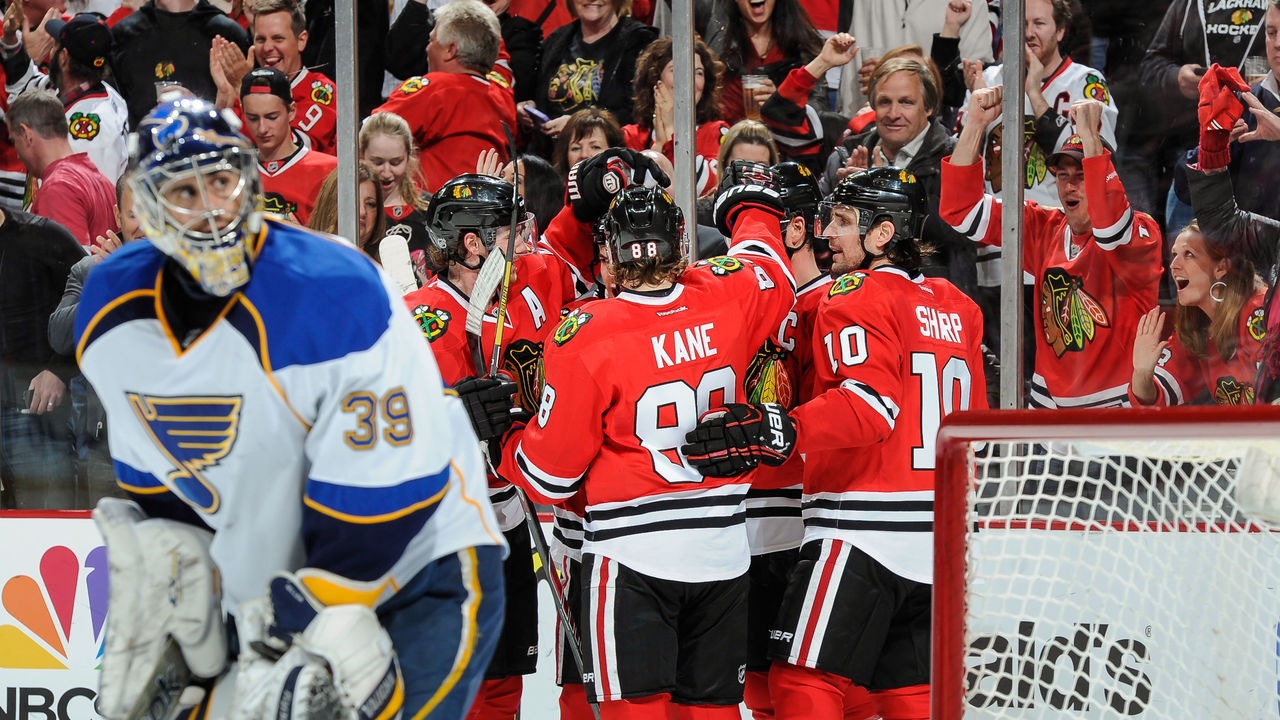
A deadline goalie move supposed to take a surging St. Louis Blues over the top ended up a massive disappoint for a team with legit Cup aspirations.
After Miller's acquisition from the Buffalo Sabres in February 2014, St. Louis backed into the playoffs by losing their final six regular-season contests - five of which were hung on Miller. A decent 10-8-1 record and .903 save percentage down the stretch was followed up by a shaky first-round performance in which Miller allowed 19 goals on only 185 shots in six games.
The Blues were unceremoniously bounced from the first round by the Chicago Blackhawks, ending St. Louis' season much earlier than many expected, especially after bringing in a goalie of Miller's caliber.
Miller came in on an expiring deal and didn't re-up with the Blues, jetting for the Vancouver Canucks and a three-year, $18-million deal in the offseason, making his deadline acquisition that much more disappointing for St. Louis.
March 4, 2017: Kings acquire Ben Bishop from Lightning
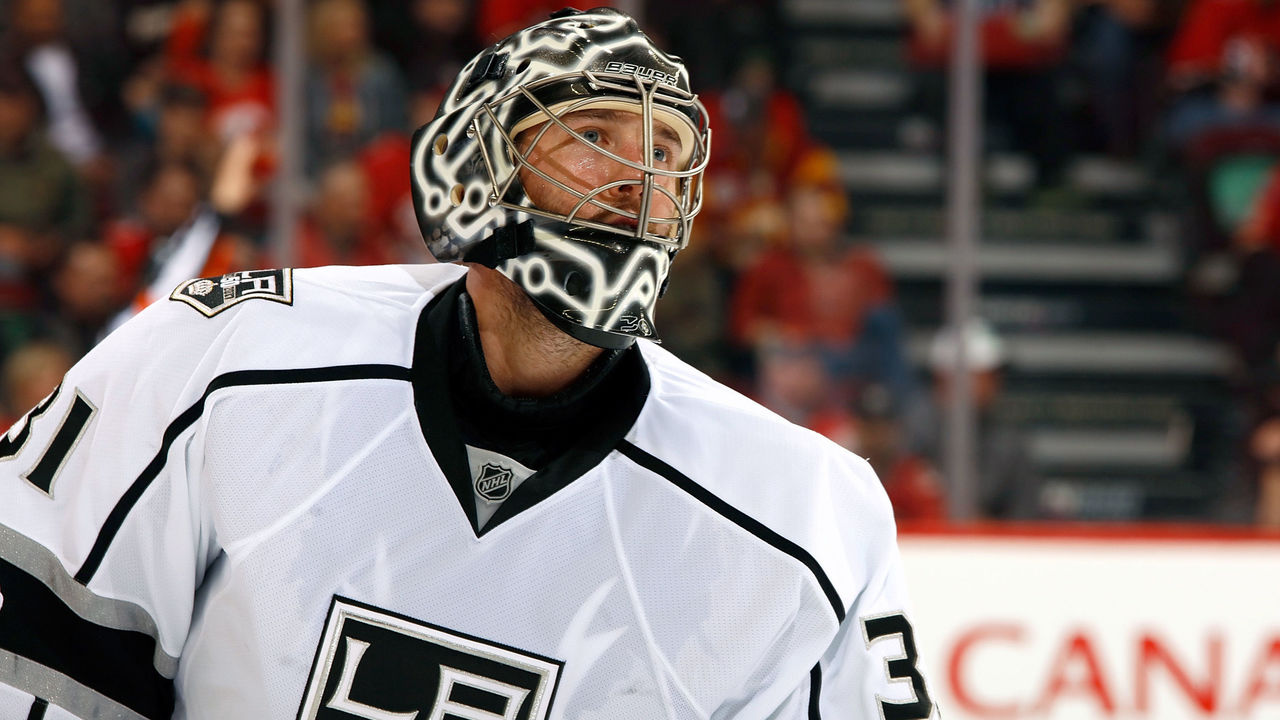
Another deadline move motivated by an expiring contract, Bishop was dealt to the Los Angeles Kings from the Tampa Bay Lightning as a pending unrestricted free agent who could add some much-needed depth and support in net for No. 1 goalie Jon Quick.
Quick missed most of the season due to injury but split time with Bishop down the stretch, to mixed results for the latter 'tender.
In the seven games after joining L.A. at the deadline, Bishop managed just two wins and a lackluster .900 save percentage. The Kings would wind up missing the playoffs for only the second time in eight years.
The Kings also paid a decent price to get Bishop, giving up Peter Budaj, defensive prospect Erik Cernak, and two late-round picks. Bishop was subsequently dealt in the offseason to the Dallas Stars, ending his short and disappointing tenure with the Kings.
(Photos courtesy: Getty Images)